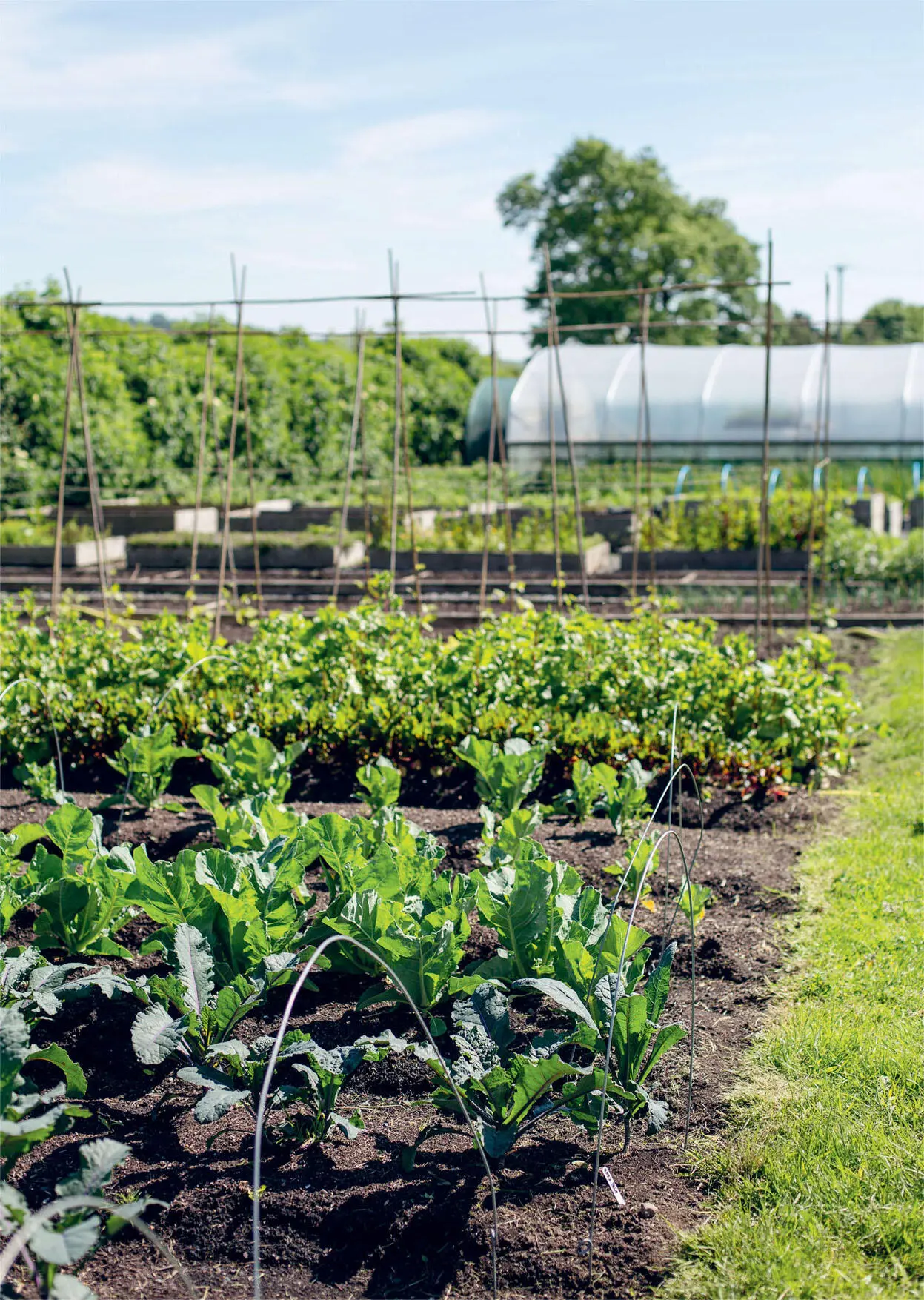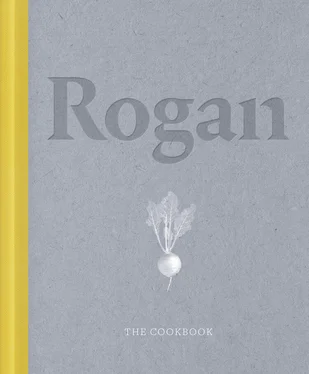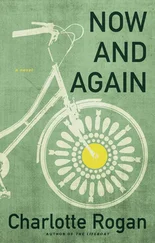So once the building had been acquired, stage two of the plan was finding an organic farm near the restaurant who could grow this for us. Being 100 per cent self-sufficient was not the intention – we knew the limitations of our abilities, being chefs, not farmers – but we wanted what we served to our guests to be locally produced and seasonal. The surrounding woodlands, the nearby coast, all the many local artisans – the cheese makers, farmers and brewers – meant that in the Lake District I could create a business that was just that, one that connected and worked in total harmony with its environment.
We worked with the farm for a while, before we had the opportunity to take over the land. Soon, though, we had outgrown the site and found ourselves needing more space – and to be closer to the restaurants. So in autumn 2011 we took possession of a huge, flat grazing field on the outskirts of Cartmel. It was ideal for our purposes; very fertile, located in the bottom of valley with a beck running alongside for natural irrigation, and sheltered from winds by trees and hedgerows.
It took a lot of time and back-breaking work to get the land into shape for what we needed – we had to source a lot of good-quality soil to improve what was there – but it was worth it, because it is such a vital part of what we do in all our restaurants. Our Farm, as it is called, works hard for us, providing us with what we need for the kitchens on a daily basis, but also enough to preserve for the out-of-season months as well as to experiment with.
We grow our own not just because we fundamentally believe in strengthening the link between produce, its development, the environment and what we eat, but from a chef’s perspective, working with fresh ingredients gives us ultimate control in the kitchen – we are able to enjoy the most diverse seasonal produce picked fresh for the plate.
And not only can we grow what we want, need and love, and be able to use it fresh when we need it, we also know that everything that comes into our kitchen has been grown naturally, free from chemical farming and without the carbon footprint that comes with imported goods.
The early days (make that early years!) were a steep learning curve, and we’re still learning – even now we spend a lot of time researching how other people manage their organic growing operations around the world, and we have a go at putting the best ideas into practice on our own land. Some work, some don’t; these are the vagaries of our soil and our location in a valley in the north of England, but we learn and we move on, designing our growing systems to reflect our beliefs about food and to serve the needs and demands of the restaurant. And that is the joy of having our land, as it allows us to experiment. When you are able to grow whatever you want, you can try different crops, which is how we have discovered some incredible new tastes, flavours and surprising combinations. My work often takes me to far-flung places around the world, where I love to wander through the markets, taking in the sights, smells and colours of interesting and exotic foods, and it’s even more fascinating to watch what the locals do with them. I often come back from these trips with seeds for these unusual plants, which I have a go at planting at home. While most of the stuff we grow is indigenous (and it’s indigenous for a reason, because that’s what grows best!), if we can get an exotic seedling to grow and flourish in our soil without the need for expensive and unnatural special attention such as lighting and heating, I’ll give it a go. The beauty is in knowing that I can take a rare herb, vegetable or fruit from anywhere in the world and try to grow it in Cumbria, then without any point of reference it becomes a new food experience for our guests. Apple marigold is one great example of this; originally from South America, we grow it at Our Farm because it brings something unique to our dishes both sweet and savoury, and because, despite its origins, it thrives in our climate.
So sometimes these seeds work out, sometimes they don’t. We don’t push it – over the years, amongst the successes there have been many failures, but that’s Nature letting us know that it just isn’t right for us. If it doesn’t work, we let it go. It goes against everything we believe in to provide enhanced conditions for the sake of growing something – we have polytunnels but they are not artificially heated, and we won’t bring in extra equipment for the sake of cultivating an exotic species.
We grow many varieties of vegetables, fruits, herbs, young plants and shoots, and they are all carefully chosen for maximum flavour and nutrient content.
We are always aware of new foods making their mark on the culinary scene, but we don’t follow fads – what we grow, we grow because it works for us. We won’t fall into line with a trend, or sacrifice our principle or ethos for any movement or accolade.

This is true for all our crops, and so perhaps intentionally and perhaps because of circumstance (our colder climate), we cultivate our crops slowly. However, although slow means lower yields than commercial growers, it does allow our crops to develop their flavours properly. We are not forcing plants to overproduce, we are attempting to get the best possible flavour from individual plants.
And perhaps this has been the most important lesson that we have learned over the years, that in order to get the amazing flavours we want on the plate and to nurture the best-quality ingredients, we must feed and respect the soil in which they are grown and work with nature. The best dishes have the best ingredients. It is an obsession of mine. Flavour is all-important. And that’s our ethos; it’s all about growing the perfect carrot rather than cooking it perfectly. Over my career I have used many of the fancy techniques or equipment that you find in many top restaurants, but since I have had access to the very best ingredients we can produce, my style of cuisine has become far simpler – both in method and execution. With the right ingredients, you don’t need lots of technology and gadgets to produce amazing food. It is this simplicity that is the keystone of my recipes, and the foundation of everything we serve in our restaurants.
These amazing shoots and herbs can be simply dressed in a light vinaigrette and served up having only been growing in the ground half an hour before. You can’t beat that freshness, that flavour, that message.
The success of our restaurants in Cartmel and London is the result of team effort. The land in the Lake District is called Our Farm because everyone who works with me has a stake in it. It is a vital cog in the business; every member of the team – whether in the kitchens or front of house – must spend one month on the land before they can work in the restaurant. Most chefs who join us have little or no experience with growing, and they can be a little overwhelmed at the sight of the rows and rows of beds and polytunnels, but once they’ve had this hands-on experience with the ingredients they have optimum respect for them and understand completely what they are working with. There’s no set pattern to what we grow, and this is reflected in our menu, so the chefs need this knowledge to be able to think on their feet and be able to combine flavours quickly and effectively. You can go up to the farm in the morning and then later in the afternoon and in that time a bunch of flowers will have opened up, ready to use. It is that violently seasonal – you have to be there four or five times a day before you can make a final decision because stuff just appears from nowhere, and to use it at its freshest you have to be there, on site, ready to pick it. You need to know every single millimetre of the land to know what is going on – and to be able to realise its potential. I’ll admit that at times this might seem a real pain to the chefs, and undeniably it means more work, but it is such a beautiful and simple concept.
Читать дальше













